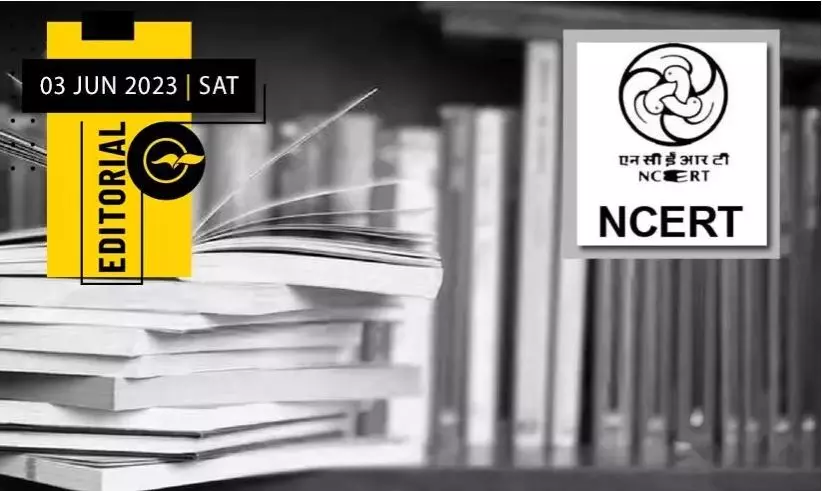
This 'Karseva' would not be limited to textbooks
text_fieldsThe Sangh Parivar administration's Karseva on textbooks has reached an even more dangerous stage. According to a new proposal, school students in India, which prides itself as the world's largest democracy, will no longer learn about democracy. The authorities of the National Council of Education Research and Training (NCERT) have announced that lessons will be revised in a rational manner to reduce the study load on students in the post-Covid era. The criteria for cutting lessons include repetition across different classes, difficulty in learning, outdated information, and irrelevance. In addition to input from NCERT's own scholars and experts, the chapters to be omitted were decided upon based on advice from a committee comprising experts from Delhi University and various higher education institutions.
It becomes evident upon examination of these passages that the great scholars advised us to avoid certain topics, revealing their hidden agendas. Sections discussing fundamental aspects of democracy, food security, climate, and wildlife diversity have been removed from the textbooks for 6th-grade students. The history of the tribal community's struggle for equality has been omitted from the 7th-grade textbook. Similarly, the chapter on Democracy and Diversity has been eliminated from the 10th-grade textbook, ensuring that high school classrooms have no opportunity for studying and discussing popular movements in India, political parties in the country, and the challenges faced by democracy.
Furthermore, lessons on poverty, development, and peace have been omitted from the 11th-grade textbook. References to the Gujarat Genocide of 2002, which stands as one of the worst genocides witnessed in independent India, have already been removed from the textbooks. Similarly, references to the Mughal dynasty, which ruled over various parts of India for several centuries and made significant social and cultural contributions, have been excised from books across almost all grade levels. Maulana Abul Kalam Azad, a freedom fighter and India's first education minister has also been erased from the textbooks entirely. Additionally, lessons on the martyrdom of the Father of the Nation, Mahatma Gandhi, have also been eliminated.
This manipulation extends beyond historical and political matters. The government has disregarded a letter, labelled as 'propaganda,' written by 1,800 experts, including prominent scientists and educators, opposing the removal of lessons on Charles Darwin's theory of evolution from the 10th-grade science textbooks. In addition, they have now eliminated the crucial concept of the periodic table in chemistry. Lessons on energy sources, pollution, and diseases have also been relocated.
The Hindutva government has been engaging in unjust textbook manipulation for years, not only at the national level but also in states like Rajasthan, Gujarat, and Madhya Pradesh. During their time in power, science books in Rajasthan taught that the Kauravas were the world's first cloned beings and that Ganesha was the first to undergo plastic surgery. Following the fall of the BJP government, education and civil rights activists worked tirelessly to protect students from such distorted scientific studies.
One could argue that in light of the politics pursued by the BJP administration, the lessons on democracy are irrelevant and outdated. The title "Democracy and Diversity" may appear troublesome to those who do not embrace diversity within the context of a single country and party. However, those familiar with the history of this government and those who control it from behind cannot believe that this ruthless deletion will be limited to textbooks alone. There is a concerted effort to remove the words "socialist" and "secular" from the constitution's preamble, which deeply undermines Indian secularism and democracy in every conceivable manner. The rehearsal of this action should be regarded as Karseva in textbooks. Every individual who desires the unity, democracy, and secularism of India to thrive amidst its diversity must step forward to combat it.























